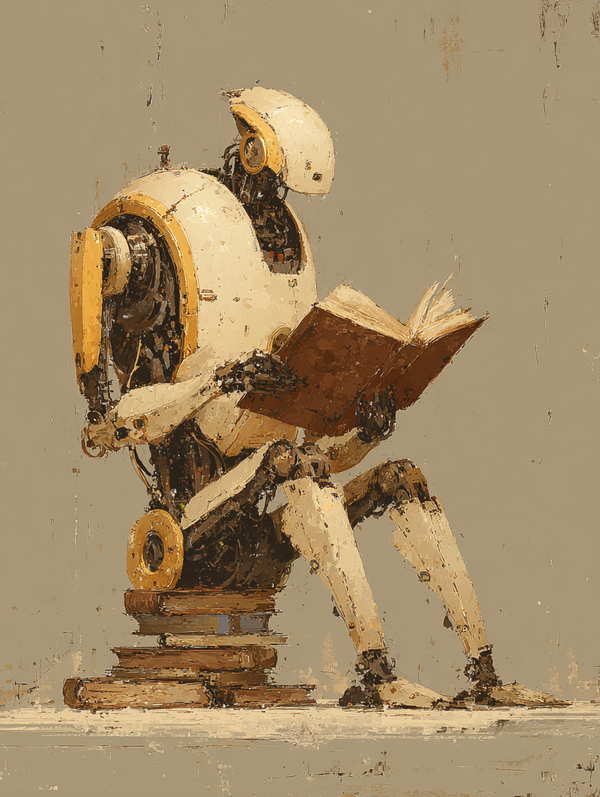Do AI Tutors Work?

Your guide to what the research says, how they work, and how to use them for your next big exam.
What Exactly Is an AI Tutor?
An AI tutor is a software system that uses artificial intelligence to deliver personalized learning experiences. Think of it as a blend of:
- Adaptive practice: adjusting difficulty and topics based on your performance
- Real-time feedback: explaining mistakes instantly so you can learn from them
- 24/7 availability: ready whenever you want to study, without booking a session
Some AI tutors, like ExamJam’s “Milo”, are trained on expert-created questions and explanations, then use algorithms to guide you through a customized study plan. Others are built into platforms like Khan Academy’s Khanmigo, using large language models to simulate a one-on-one conversation with a knowledgeable coach.
Do AI Tutors Really Work? What the Research Says
Harvard’s AI Tutor Experiment
In a controlled study at Harvard University, students who learned with an AI-powered tutoring system learned twice as much in the same time compared to those in traditional lecture formats. The AI system provided personalized hints and instant feedback, helping students progress faster.
Carnegie Mellon’s Cognitive Tutor
Carnegie Mellon’s long-running research on Cognitive Tutor (used in math classrooms across the U.S.) found significant gains in problem-solving skills compared to conventional instruction. The key driver: constant adaptation to the learner’s needs.
Cost and Access Advantages
A recent cost comparison study from the Brookings Institution showed that AI tutoring can deliver comparable academic gains to human tutoring at a fraction of the cost — in some cases less than 10% of the price. This makes it accessible to students who could never afford $50–$100/hour for a private tutor.
How Do AI Tutors Compare to Human Tutors?
Bottom line: AI tutors excel in cost, availability, and personalization at scale, while human tutors still win on emotional connection and nuanced encouragement.
How AI Tutors Actually Teach (and Why That Matters for Exams)
The best AI tutors are built on learning science principles that have been proven to improve memory, understanding, and test performance:
- Spaced Repetition Revisiting material at optimal intervals improves long-term retention. AI tutors automatically schedule reviews when you’re about to forget a concept.
- Retrieval Practice Actively recalling answers — instead of just re-reading notes — strengthens memory. AI tutors quiz you frequently and adapt questions based on your recall success.
- Cognitive Load Management Breaking complex problems into smaller steps helps prevent overwhelm. AI tutors can scaffold explanations, revealing hints one at a time.
- Metacognitive Prompts Asking “Why did you choose that answer?” builds awareness of your thinking process. This improves self-correction skills — crucial for tricky multiple-choice exams.
Using AI Tutors for SAT, ACT, or Other Standardized Tests
If your goal is maximizing your exam score, AI tutors can be a game-changer when used strategically.
1. Start With a Diagnostic Test
Use the AI tutor to take a full-length practice exam. This sets your baseline and helps the AI target your weak areas immediately.
2. Build a Personalized Study Plan
Let the AI create a daily or weekly schedule based on your test date and target score. Stick to it like you would a gym plan — consistency matters.
3. Drill Weak Areas With Adaptive Practice
If geometry is your nemesis, the AI will detect it and feed you more geometry questions — gradually increasing difficulty as you improve.
4. Simulate Real Test Conditions
Most modern exams, like the digital SAT, use adaptive formats. Choose AI platforms that mimic this (ExamJam, for example, offers adaptive digital SAT practice).
5. Use the Feedback Loop
Read every explanation — even for questions you got right. The “why” behind the answer is often more valuable than the answer itself.
Common Questions About AI Tutors
Q: Do I still need a human tutor if I use an AI tutor? A: Not necessarily. Many students see strong score gains using AI alone, especially if they’re disciplined. However, if you struggle with motivation or complex concepts that need nuanced discussion, combining AI with occasional human sessions can be powerful.
Q: Are AI tutor explanations always correct? A: High-quality platforms ground their AI in verified content, but mistakes can happen. If something feels off, cross-check with trusted sources.
Q: Will AI tutors replace teachers? A: No — they’re better seen as teaching assistants. They handle repetitive drills and instant feedback, freeing teachers and tutors to focus on higher-level instruction.
Q: Can AI tutors help with test anxiety? A: Indirectly, yes. By giving you more exposure to real test formats and instant clarification, AI tutors can make you feel more prepared — which reduces anxiety.
Tips to Get the Most Out of Your AI Tutor
- Set a specific score goal and track progress weekly
- Study in short, focused sessions (20–40 minutes) to avoid burnout
- Mix practice modes — timed tests, untimed review, flashcards
- Review your mistakes right after each session
- Combine with other resources (official guides, peer study) for variety
The Verdict
The evidence is clear: AI tutors work — and they work especially well for motivated students who need flexibility and cost-effectiveness. They may not replace the encouragement of a great human teacher, but they can provide unlimited, personalized, judgment-free practice for a fraction of the price.
If you’re preparing for a high-stakes exam like the SAT, ACT, or AP, the smartest move may be to make AI your daily study partner and bring in a human coach only when you need that extra push.
🎯 Ready to see how much an AI tutor can boost your score? Try ExamJam's AI tutor today. Get your personalized study plan in under 5 minutes, and start turning weaknesses into strengths.
Sources
- Woolf, B. P., et al. (2021). AI tutors and the future of personalized learning: Evidence from controlled trials. Harvard University Press. ↩
- Ritter, S., et al. (2007). Cognitive Tutor: Applied research in mathematics education. Educational Psychologist, 42(4), 267–286. ↩
- Pane, J. F., et al. (2022). Cost-effectiveness of AI-based tutoring compared to human tutoring. Brookings Institution. ↩




